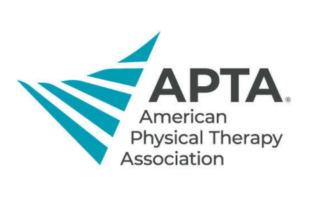The Alliance for Connected Care aims to:
Demonstrate the importance of Connected Care as a tool for improved quality and efficiency.
Build significant and high-level support for Connected Care among leaders in Congress and the Administration.
Enable more telehealth to support new models of care.
Lift geographic and site restrictions for telehealth in Medicare.
Establish a consensus-based, standardized definition of Connected Care to advance with policymakers.
Alliance News
Office of the Assistant Secretary for Planning and Evaluation (ASPE): Trends in Medicaid and CHIP Telehealth
Office of the Assistant Secretary for Planning and Evaluation (ASPE): Trends in Medicaid and CHIP Telehealth ASPE released a report, which examined national trends in telehealth service delivery to enrollees ages 0-18 years from 2019 to 2021, by enrollee characteristics such as age group and race and ethnicity. Services delivered via telehealth to pediatric Medicaid and CHIP enrollees rapidly expanded with the onset of the COVID-19 Public Health Emergency (PHE) in 2020 and remained higher than pre-PHE levels in 2021. However, services delivered via telehealth only partially offset declines in in-person services, and total Medicaid and CHIP service utilization [...]
Departments of Labor, HHS, Treasury: Report to Congress on the Mental Health Parity and Addiction Equity Act
Departments of Labor, HHS, Treasury: Report to Congress on the Mental Health Parity and Addiction Equity Act The Departments of Labor, HHS, and Treasury issued the 2024 Report to Congress on the Mental Health Parity and Addiction Equity Act enforcement and implementation, which highlighted the ongoing efforts of the Departments to strengthen and enforce the protections of MHPAEA. Most notably for telehealth, the Departments will review access to telehealth for mental health and substance use disorder care. The ERISA Industry Committee filed a lawsuit against the Departments on MHPAEA, arguing the rule oversteps in its requirement for health plans [...]
Alliance Statement – DRUG ENFORCEMENT ADMINISTRATION (DEA) RELEASES SPECIAL REGISTRATION PROPOSAL
ALLIANCE STATEMENT DRUG ENFORCEMENT ADMINISTRATION (DEA) RELEASES SPECIAL REGISTRATION PROPOSAL JANUARY 2025 The Alliance for Connected Care appreciates the Drug Enforcement Administration’s (DEA) forward movement on telemedicine prescribing of controlled substances policy. Today, the DEA released a notice of proposed rulemaking, which would establish a special registration framework and authorize three types of special registrations for telemedicine. We are pleased to see the DEA propose a special registration, as required by statute, to allow comprehensive medical care through telemedicine, including Schedule II medications. These treatments are important in providing mental health, end-of-life care, substance use treatment, and many other services. [...]
Assistant Secretary for Planning and Evaluation (ASPE): Barriers to Attention-Deficit/Hyperactivity Disorder Diagnosis in Adults
Assistant Secretary for Planning and Evaluation (ASPE): Barriers to Attention-Deficit/Hyperactivity Disorder Diagnosis in Adults Through an environmental scan and key informant interviews with clinical experts and people with lived experience of being diagnosed with ADHD in adulthood, this report explored the process by which ADHD is diagnosed in adults, barriers and facilitators to diagnosis, and opportunities to improve the diagnostic process. Related to telehealth, the study also reviewed the role telehealth has played for patients receiving an ADHD diagnosis and found it increased convenience, reduced anxiety about completing an evaluation for ADHD, and increased access to care. [...]
Journal of Telemedicine and Telecare: Psychotherapy for Post-Traumatic Stress Disorder Delivered via Video Telehealth in the Veterans Health Administration (VHA)
Journal of Telemedicine and Telecare: Psychotherapy for Post-Traumatic Stress Disorder Delivered via Video Telehealth in the Veterans Health Administration (VHA) Trauma-focused evidence-based psychotherapy (EBP) is the recommended treatment for post-traumatic stress disorder (PTSD). During and after the COVID-19 pandemic, veterans began to initiate general mental health services delivered via video telehealth at high rates. This study found video telehealth delivery of PTSD EBPs was more common than in-person delivery of PTSD EBPs. Future research designed to contextualize the observed differences in video telehealth delivery of PTSD EBPs should consider the role of social determinants of health. [...]




















